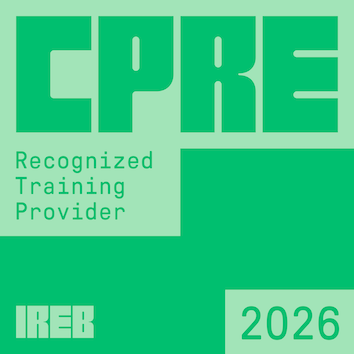An ISTQB certificate does not automatically make you a better tester – but it shows that you have the will and the ability to become one. It is a statement: I am ready to face the challenges of software testing, to continue my education and to maximise the quality of my work. Companies know exactly that with a certified tester, they get someone who doesn't just ‘sort of’ test, but tests according to a clear, structured plan. This means fewer errors, more efficiency and collaboration with developers and requirements engineers that really works.
A major advantage of ISTQB certification is that it provides you with clear training. You start with the Certified Tester Foundation Level, where you learn the basics: test processes, techniques such as white box testing and black box testing, and how to keep the software lifecycle in mind. The software lifecycle is an integral part of the Foundation Level as it provides a comprehensive overview of all steps of the software testing process. The aim is to make you fit for everyday software testing - from test planning to checking the results.
But it doesn't stop at the basics. Depending on where your interests lie, you can develop further. The Advanced Levelshows you how to manage complex test projects, how to correctly assess risks and how to work with other teams in the project. You will learn how test management works, how to develop a test strategy, which methods and techniques help you to organise the test process efficiently, how to make the most of your resources and when test automation makes sense. Finally, at Expert level, you become an expert yourself - someone who not only carries out tests, but also leads test teams and is able to keep even the most difficult projects on track.
The question is: what do you want to achieve? If you want to get ahead in your career, stand out from the crowd and do the really exciting projects – then there is no way bypassing ISTQB certification. And it's not just about the certificate itself. It's about the knowledge, the understanding of the processes and the practice that will ultimately help you deliver the best results.
ISTQB certification is a clear advantage when you are in job interviews. It shows that you have really familiarised yourself with the subject matter. That you are able to develop test strategies, understand and implement test processes and always pay attention to software quality. Companies are looking for software testers who work according to proven standards – and that's exactly what ISTQB offers.
The path to ISTQB certification may not be the easiest. There is a lot to learn, from test methods and test management to the practical application of test techniques. But it's worth it. Because in the end, you are not just a tester – you are a certified tester who knows how to plan, execute and evaluate tests correctly. You are someone who sees software testing not just as a task, but as an opportunity to really improve the quality of a product.






